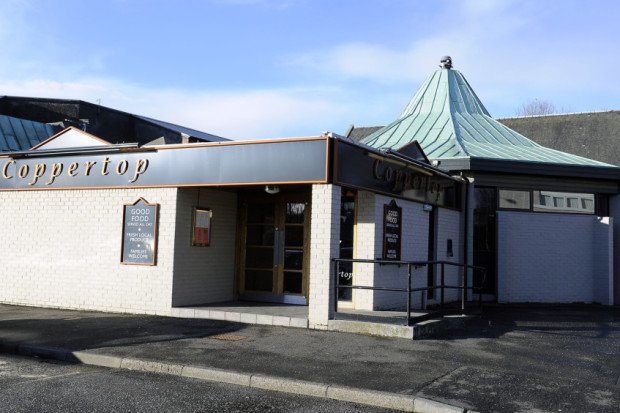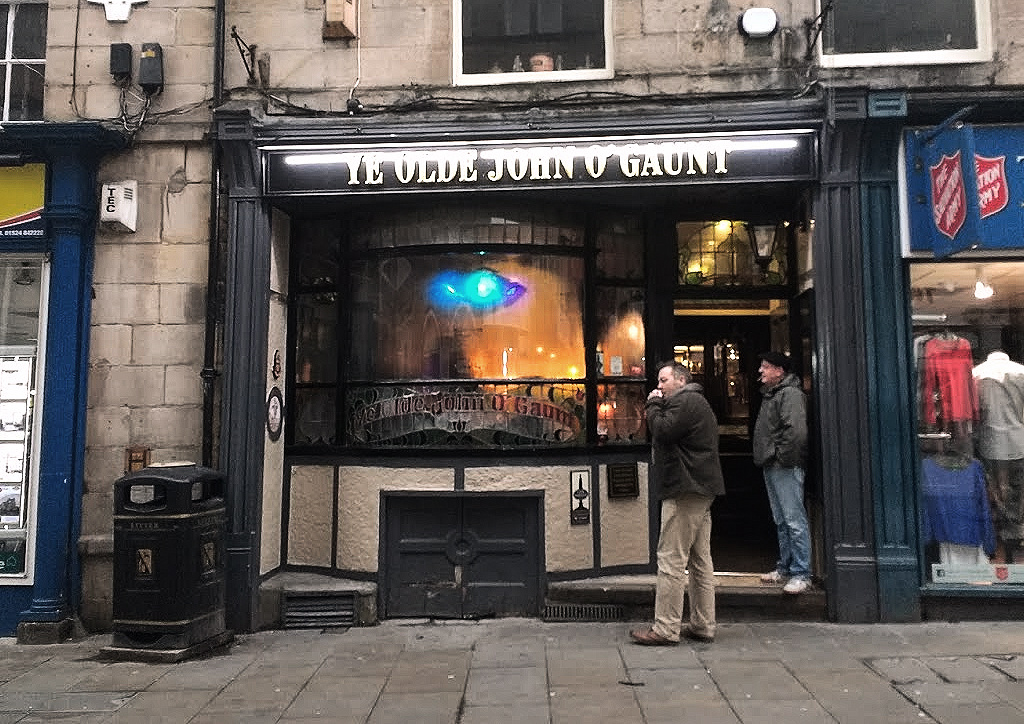Today, there was some news that everybody knew was coming. Despite denials and backlash for around a month, we’ve all kindof known that B-town were getting into some sort of investment opp with Heineken. I don’t even know why I knew that. I guess I’m on Beer Twitter too much.
It’s lovely to report that people have generally been pretty supportive of Beavertown and the people who work there – particularly Kamilla who manages their social outreach and can’t have had an easy day. Being that I’ve spent my day writing an extremely boring SEO article I feel like I’ve been on the front lines of a breaking story, following the tweets as they happened, interested to see what the consensus would be. After all, I know bugger all about business, and I’ve got precious little to say about corporate buyouts. All I wanted to know was: would people care? And if so, how much?
One of the first visceral negative reactions was by Cloudwater, who, disgusted by what they saw as blatant “selling out”, withdrew their attendance from Beavertown Extravaganza 2018.
Hey, folks. We have an announcement about Beavertown Extravaganza. pic.twitter.com/704x5ItbmX— Cloudwater Brew Co (@cloudwaterbrew) June 21, 2018
Then I saw this – which I will admit, made me laugh, if only for what I perceive to be total hypocrisy and opportunism.
We will no longer be selling Beavertown beers or attending Beaver Ex. I wrote this piece in 2015 but it seems very relevant today too https://t.co/36Jn93MRI3— James Watt (@BrewDogJames) June 21, 2018
I’ve been attempting to understand this stance and I think what I’m getting from it is – independent breweries should always remain independent. They should gain their investment through non-macro methods, and the ultimate aim should be to grow naturally as the brewery expands, rather than view it as a business to be expanded or an investment opportunity to be exploited.
Okay. But whether breweries like it or not, they are making and selling a product and paying wages, and bending to supply and demand. A non co-op brewery is not at it’s heart a revolutionary enterprise. Once it begins to grow, more staff need paying, more equipment needs replacing, more costs are incurred. Growth begins to bring in fewer returns. Soon, you need more investment. Of course, some breweries manage this just fine with crowdfunding, but just how many drinkers are willing to pay their good money to help people they don’t know build their dreams? And when will kickstarter fatigue kick in?
I guess I’ve just never really cared as much as I should about the plight of small brewers versus the vulturous swoopings of Big Beer. I know this is sacrilegious, but I’m being honest; this being an opinion piece after all. Maybe it’s because when I began being interested in the industry, everyone was over the tough times. It’s been a veritable fiesta of good beer and fruitful collaborations ever since I’ve known it, with new breweries reaching into the spotlight of a nourishing, welcoming industry environment. People have learned to support their local brewers and champion the little guy. Part of that has been through the banishment of the big guys, yes, but as far as I’ve seen it from my little Northern part of the world, big and small have begun to co-exist well. The main issue we’ve had recently is CAMRA’s continuing refusal to give keykeg a chance – a throwback to when times really were hard for the little guy, this is now actively excluding some independent brewers from events and the like. Ironic, isn’t it?
I suppose, as James Beeson points out in this much more accomplished piece on the subject, it’s a question of credibility. Will joining forces with Heineken, even as a minority stakeholder, damage Beavertown’s credibility as an independent brewer? I’d like to point out two things from my own personal experience:
1. People at the pub I work at already started telling me they thought Neck Oil’s recipe had changed around a month ago, and would not be consoled or appealed to under any circumstances. This is, obviously, total nonsense. I get the feeling some of the nastier know-it-alls had heard half the story we’d all heard and told the well-meaning indie supporters some BS that it was now being made at a Macro Brewery.
2. Beavertown beers have paved the way for most of the other independent breweries being drunk in Clitheroe. If Neck Oil and Gamma Ray did not exist, I sincerely doubt many of our locals would be trying – and enjoying – half of the interesting beers from all over the country we get in now. They are hugely popular here in the Ribble Valley and I’m not sure many drinkers would care about the beers’ provenance even if I told them Vladimir Putin made it in his bathtub.
FYI we will 100% sell out the first time anyone waves a medium sized cheque in our faces so please don’t invest any emotional capital in us.
— Pilot (@pilotbeeruk) June 21, 2018
Credibility is a rocky road. On the one hand, building a brand at the end of it leads to total consumer loyalty. On the other, any wavering from the path of righteousness can see customers not only feeling disappointed, but cheated. Worse – they feel that they’ve been taken for a ride. From my first point, it’s clear that some people will never feel right drinking beers brewed in conjunction with one of the Big Boys. Fair enough. For me, I don’t feel like Beavertown have ever made me feel like their brand was based on simple, homespun socialism anyway. As long as I’ve understood that they were different from the rest of the breweries on the market – and they are, in my opinion – they’ve made great beers, they’ve concentrated on expanding that side of the business (even closing Duke’s Brew and Cue to make beer their number one brand priority) and they’ve grown consistently. Even knowing their first beer were made on a stovetop, that doesn’t make me feel like I want them to return to those roots. They’re just a business with a unique, in-demand product coping and benefitting from that demand. Why wouldn’t they look for external investment to grow? Reminder – businesses are supposed to make profit. And sorry to break it to you, but breweries are businesses. I’m not saying I agree with the model, I’m just saying that that’s how things work here in Capitalism Land.
The amount of small brewers I’ve spoken to who cite Beavertown’s success story as one of their inspirations for getting started is uncountable. Admittedly, I have discalculia. In my extremely humble opinion, we can all stop Holden Caulfielding them. They aren’t phony. They’re a big reason why the UK’s indie beer scene has continued to flourish, and why more people than ever are trying different beers all over the country.
Also, fuck Holden Caulfield. Worst literary character in history.


The question for me is about trust – not Trusting Logan to Do The Right Thing (whatever…) but whether we trust Heineken to go on producing the same beers to the same recipes & the same quality. Will the same range be maintained in the longer term? Will the quality be sustained? It seems much more likely that the future for Beavertown is a couple of brands in the Heineken stable, which would be a shame.
I may be reading this completely wrong; maybe they've taken Heineken's money in return for a non-controlling minority share which will always remain a non-controlling minority share. In that case, good for them, nice one, top blag – and there's no significant difference between their situation and BrewDog's. But there are already too many examples of independent breweries being bought and turned into brands, at the expense of the beer. Doom Bar is a shadow of its former self; Meantime London Pale is a truly dreadful beer; outside the craft sphere, look what's happened to Ringwood beers under Marston's tender care.
TL;DR I hope this doesn't spoil the beer, but a ton of past experience suggests that it will. Shame.
Really good piece this. Not much to argue with at all.
Superb piece!
Hopefully the Beavertown experience will be similar to that of Devils Backbone over here in Virginia. Since being purchased by Anheuser-Busch there has been a load of investment in the plant at both the original brewpub and the production brewery, including horizontal lagering tanks – Jason Oliver, the head brewer, is one of the best lager brewers out there. The beer coming out of the production brewery is consistently excellent, and the brewpub continues to do inventive beers as well as their wonderful staples.
From the experience of the Devils Backbone staff, one of the first things the company was able to do was double their matching on pension plans from 3% to 6%, which in this country is huge.
It's been just over two years since the sale, and Devils Backbone is, if anything, better than ever, and shows no signs of regressing.
I really hope it doesn't spoil the beer too, Phil. I really do. For the moment, I'm hopeful – and a month on, we've already seen Sapling etc. come out of the woodwork (excuse the pun) so it seems for now, they're being just as experimental as ever while they try to get their international concerns off the ground. I wish them well, but like you, I've got a healthy amount of worry in me. But I'm worried that one of my favourite breweries will end up backed into a corner by big beer. I truly hope this doesn't ever happen, and for now, I can't see Beavertown allowing it.
Thanks very much for reading!
That's all really positive stuff and I'm glad to hear that DB are getting some real benefits from the AB-InBev takeover. I've heard a similar story from a brewery in the Czech Republic who were bought out and are now doing better than ever. If it hadn't been for Big Beer, their whole operation would have ceased – ending 150+ years brewing.
Now, whether that brewery's troubles were caused by Big Beer, that's another question. But seeing how it can bring positives to smaller breweries has made me feel a little more positive. Maybe they've realised that sometimes they'll actually turn better profits if they leave the smaller places they acquire alone to do what they do best?